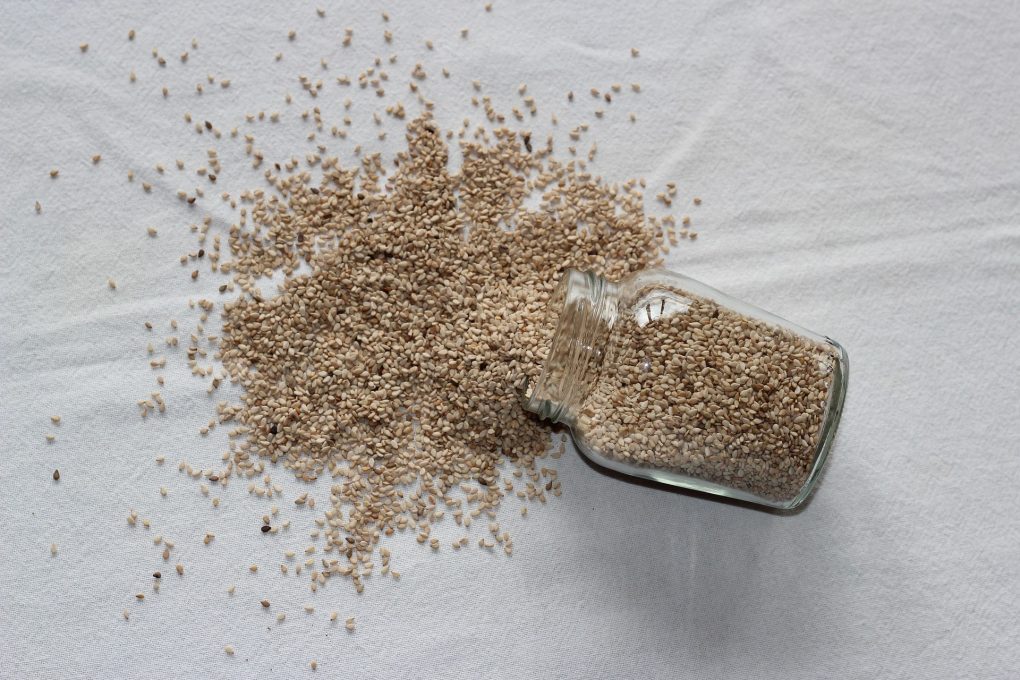
Flax – a Perfect Polish Product
Flax is a plant that has been known for many years. Its valuable benefits come from flax seeds (i.e. linseed), which have a healing effect and are also used in cosmetics. Today you will learn a bit more about this Polish superfood, also called the “gold of Polish fields” 🙂
Nutritional Value
In terms of nutritional value, flax is a valuable source of omega 3 fatty acids, and more specifically alpha-linolenic acid (ALA). You will also find a number of vitamins and minerals in it, such as: vitamins E and C, B vitamins, as well as calcium, magnesium, phosphorus, zinc, and copper. Flax seeds are also a source of protein and dietary fiber.
Digestive System Support
Flax has a positive effect on the functioning of the digestive system, among others by supporting the work of the intestines. Its ability to bind water increases the volume of stool, thanks to which it regulates the frequency of bowel movements. It is also used when struggling with diarrhea and flatulence, and drinking the so-called linseed jelly is a good way to fight constipation.
It is also worth mentioning the mucus contained in flax seeds, which secretes after pouring water on the seeds and produces a characteristic gruel. This mucus has a protective and coating effect, which is why it is used to protect the stomach wall, as well as to soothe irritation of the digestive tract or as an additional cover during the use of antibiotics.
In addition, thanks to the high content of fiber, flaxseed is a prophylaxis and support in the treatment of such diseases of the digestive system as gastric ulcers or hyperacidity.
Cancer Prevention
One of the valuable components of flax are lignans, i.e. plant hormones classified as compounds called phytoestrogens. Lignans support the regulation of estrogen levels in the body and have an antioxidant effect, thanks to which they are used in the prevention of cancer, especially hormone-dependent cancers, e.g. breast or ovarian cancer. A positive effect can also be seen in people with an already diagnosed disease. In animal studies, it was shown that the addition of linseed oil reduced the growth of cancerous tumors and increased the effects of treatment.
Menopause Symptoms Relief
Flaxseed is also used to alleviate the negative symptoms of menopause and in the postmenopausal period. Phytoestrogens present in flaxseeds have a similar effect to estrogens, i.e. hormones present in the body. They reduce the occurrence of symptoms such as hot flashes, anxiety, and nervousness.
Lower Levels of Glucose and Cholesterol in the Blood
Flax can also be used to reduce the risk of type II diabetes and in people with already diagnosed disease, reducing blood glucose levels. In studies conducted among people diagnosed with type II diabetes, as little as 10 g of linseed a day reduced fasting glycaemia, but also improved the lipid profile (it lowers the level of total cholesterol and “bad” LDL cholesterol in the blood). Thanks to this, flax is also used in the prevention of cardiovascular diseases, including atherosclerosis, hypertension and heart attacks.
Weight Loss Support
The dietary fiber in flaxseeds can facilitate the weight loss process. All thanks to the fact that fiber is responsible for the feeling of satiety, which reduces the desire to snack between meals. One tablespoon of linseed provides almost 3 g of fiber!
What is the best way to consume flax? What amount will be appropriate? It’s worth asking such questions before including this product in your diet.
Flax can be eaten whole or ground, and in the form of oil.
Whole seeds can be used to prepare oatmeal, smoothies, or salads. If you decide to use ground seeds, it is best to prepare them yourself, just before consumption. The fats present in flax are quickly oxidized, which makes flax stored in ground form much less nutritious.
As an addition to your meals, you can also use jam with linseed, which you can find HERE!

Flax is also the raw material from which oil is produced (by pressing the seeds). Flaxseed oil should only be used “cold”. After being subjected to thermal treatment, it loses its valuable properties. The oil is great as a base for salad dressings, in salads or as an addition to cottage cheese with vegetables.
Flaxseeds are best stored in a dark place, in glass containers, while the oil should be stored in the refrigerator.
However, it is worth remembering that flax seeds contain cyanide compounds, so they should be eaten in moderation. It is best to use 1-2 tablespoons a day.
The Versatility of Linen
In addition to using flax as a food plant, it can also be found in cosmetics or the textile industry.
Cosmetics can contain both flax seed extract and linseed oil. Most often they are ingredients of creams, ointments, soaps, hair masks and shampoos. Flax contains large amounts of mucus and oil compounds, which is why cosmetics with its addition have softening, cleansing and anti-inflammatory effects. They are perfect for the care of dry, sensitive and dehydrated skin, as well as dry and damaged hair.
Flax can also be used to obtain exceptionally valuable fibers, which are mainly used for the production of fabrics used, among others, in the production of clothing, bedding, towels or interior furnishings (curtains, pillows).
Flax can also be used to obtain exceptionally valuable fibers, which are mainly used for the production of fabrics used, among others, in the production of clothing, bedding, towels or interior furnishings (curtains, pillows).
Of all natural textile fibers, linen is one of the strongest and most durable fabrics. Due to its thermoregulatory properties, I often choose clothes with the addition of linen. Together with its ability to absorb moisture and dry quickly, it is perfect and comfortable at any time of the year 🙂
Flax is a cheap and easily available product in Poland, so I encourage you to use it, especially when cooking, to experience its numerous valuable properties 🙂
Bibliography:
- Bernacchia R., Preti R., Vinci G., Chemical Composition and Health Benefits of Flaxseed. Austin Journal of Nutrition and Food Sciences 2014, 2(8): 1–9.
- Calado A., Neves P.M., Santos T., Ravasco P., The Effect of Flaxseed in Breast Cancer: A Literature Review. Front Nutr. 2018, 5: 4.
- Parikh M., Pierce G.N., Dietary flaxseed: what we know and don’t know about its effects on cardiovascular disease. Can J Physiol Pharmacol. 2019, 97(2): 75-81.
- Soltanian N., Janghorbani M., Effect of flaxseed or psyllium vs. placebo on management of constipation, weight, glycemia, and lipids: A randomized trial in constipated patients with type 2 diabetes. Clin Nutr ESPEN. 2019, 29: 41-48.
- Zhu L., Sha L., Li K., Wang Z., Wang T., Li Y., Liu P., Dong X., Dong Y., Zhang X., Wang H., Dietary flaxseed oil rich in omega-3 suppresses severity of type 2 diabetes mellitus via anti-inflammation and modulating gut microbiota in rats. Lipids Health Dis. 2020, 19(1): 20.









Comments No Comments
Join the discussion…